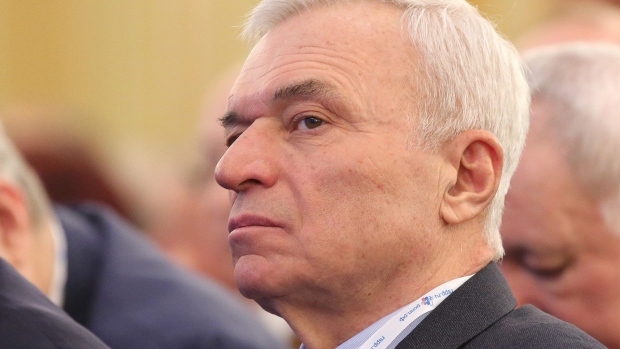Sep 14, 2023
Russian Elite Bring Back $50 Billion of Assets as Havens Dwindle
, Bloomberg News

(Bloomberg) -- Russian billionaires, squeezed by international sanctions and facing pressure from President Vladimir Putin to repatriate their wealth, have pulled assets worth tens of billions from Europe since the invasion of Ukraine.
Last month, shareholders of United Medical Group CY Plc and MD Medical Group Investments Plc, controlled by tycoons Igor Shilov and Mark Kurtser, approved the companies’ move from Cyprus to Russia. That transfer will help push the total value of assets that have been re-domiciled by the wealthiest Russians since February 2022 to at least $50 billion, according to data compiled by Bloomberg.
The shift is breaking with a decades-old practice by Russian billionaires to hold their assets in Europe, taking advantage of investor-friendly legal systems, the chance to get dividends in foreign currencies and low taxes. Now, Russia’s richest are left with a dwindling number of places to put their wealth, as many of them are under US, UK or European sanctions.
“Right now, Russia seems less of an evil than overseas,” said Natalia Kuznetsova, partner at Business Solutions and Technologies, which formerly operated in Russia under the Deloitte brand.
The transfer of assets registered in locations including Cyprus, Jersey and Switzerland to Russia and nations the Kremlin considers friendly, such as the United Arab Emirates and Kazakhstan, started soon after the invasion. Among the first moves were the family holdings of fertilizer billionaire Andrey Guryev and steel tycoon Victor Rashnikov from Switzerland and Cyprus to Russia. Others, like billionaire Igor Altushkin, followed later.
Under Pressure
The Kremlin has put pressure on the wealthiest Russians to repatriate their assets from the countries it calls “not friendly.” Dual tax treaties have been suspended, making it impractical to stay registered in places like Europe. Russia makes it hard for companies to pay dividends or sell assets to the entities registered in such jurisdictions.
“The Russia-Cyprus link doesn’t work very well now in terms of money transfers,” said Alexei Kuznetsov, partner at B1, which formerly operated in Russia under the Ernst & Young brand. “This is solved by moving to a friendly jurisdiction or Russia.”
In August, Putin instructed the government to create a mechanism that will allow Russia to regain control over Russian companies, where such control is exercised through foreign entities and was lost as a result of sanctions.
Read More: New Bans Force Rich Russians to Drop Favored Investment Vehicle
To lure the tycoons home, the Kremlin has used incentives such as the local low-tax domestic “offshore” zones it introduced in 2018 and constantly fine-tunes. Russia also raised the cost of keeping assets in traditional havens like Cyprus or Malta, while holdings with international assets that re-registered in Russia can qualify for tax benefits.
It’s not only billionaires shifting their holdings — other Russians are also moving their assets home. As many as 115 companies moved to domestic “offshore” zones this year making it an overall total of 254, the First Deputy Economy Minister Ilya Torosov said at the Eastern Economic Forum on Monday.
A number of Russia’s largest commodities and technology companies are still registered in Europe. Fertilizer maker EuroChem Group AG, founded by billionaire Andrey Melnichenko, is based in Zug, Switzerland, while agricultural firm Ros Agro PLC moved its listing to Kazakhstan, and is working to re-domicile from Cyprus, the company said last month without disclosing details.
Friendly Countries
Billionaires who aren’t under sanctions are also looking for new homes for their European holdings and favor jurisdictions the Kremlin deems to be friendly. Steel magnate Vladimir Lisin and transportation holding Globaltrans Investment Plc have moved to Abu Dhabi from Cyprus, while Russia’s second biggest gold miner Polymetal International Plc re-registered in Kazakhstan last month. The company is not under sanctions, but its Russian unit was placed on the American list this year.
For Globaltrans the move may mean the restoration of dividend payouts, while Polymetal will be able to split its Russian and Kazakh assets, which would have been complicated if it stayed Jersey-registered.
©2023 Bloomberg L.P.


